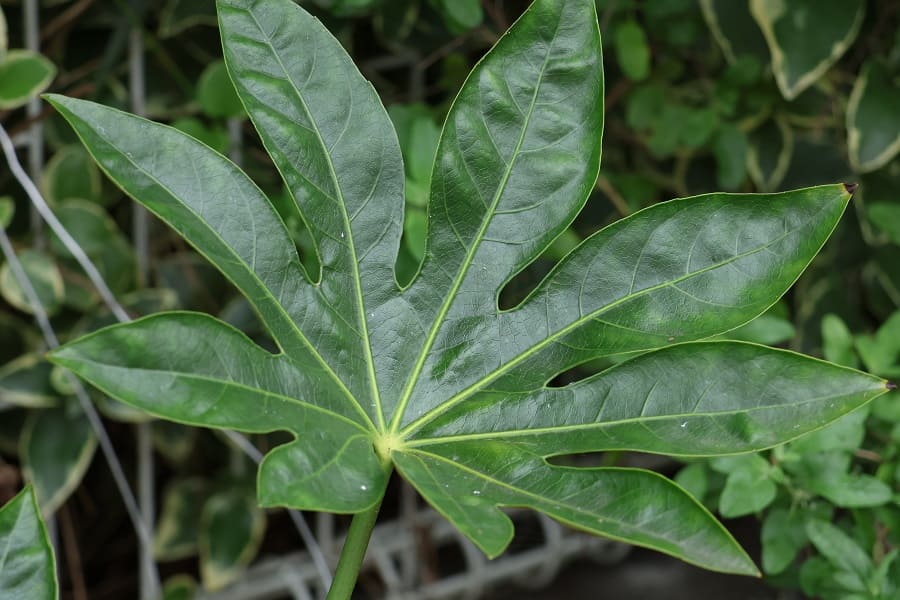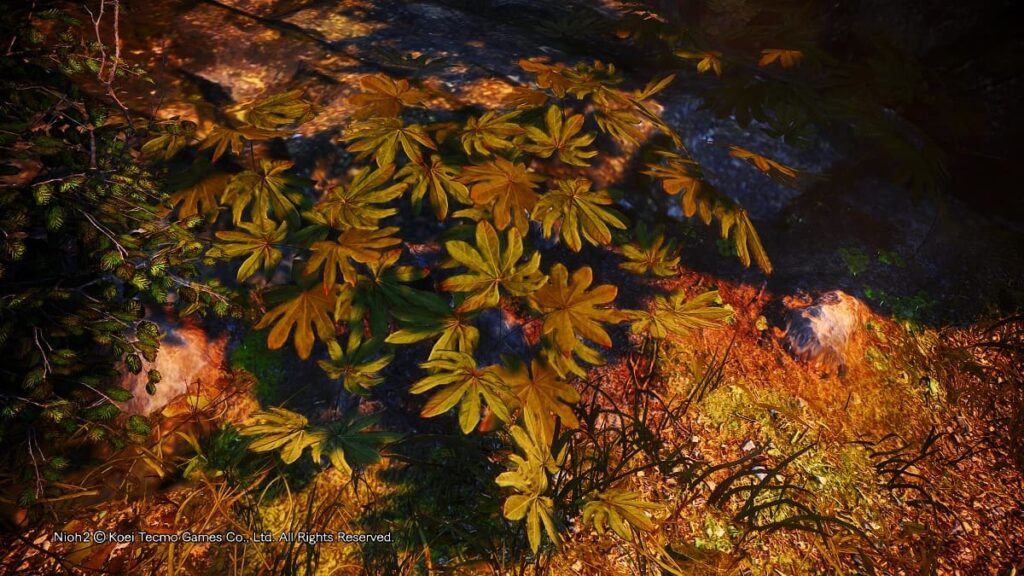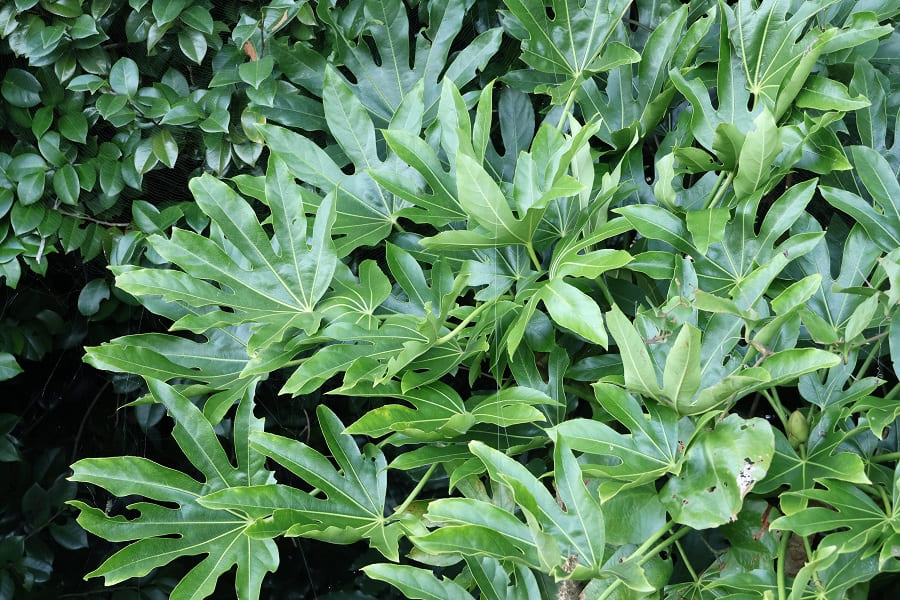Yatsude, also known as the Japanese Fatsia, is a plant deeply rooted in Japanese culture and folklore. Its large, hand-shaped leaves make it a popular choice for gardens, but Yatsude is more than just an ornamental plant. It holds symbolic value as a lucky charm and plays a role in Japan’s rich tapestry of legends, including those about the mythical Tengu.
In this article, we’ll explore why Yatsude is considered a symbol of good fortune, its intriguing connection to Japanese legends, and its cultural significance.
What is Yatsude?

Yatsude (Fatsia japonica) is a native Japanese plant known for its distinctive large, lobed leaves. The name “Yatsude” translates to “eight hands,” referring to the shape of its foliage, which resembles an open hand with multiple fingers.
Often found in traditional Japanese gardens and near temples, Yatsude is admired for its resilience and evergreen nature. It’s a plant that thrives even in the shade, symbolizing endurance and vitality in Japanese culture.
Yatsude as a Lucky Charm
Yatsude has long been considered a plant that brings good fortune. Its unique leaf shape is thought to resemble a hand warding off evil spirits, which is why it’s often planted near entrances to homes or temples.
The plant is also associated with prosperity and longevity. In Japanese traditions, Yatsude is seen as a guardian plant that protects households from misfortune, making it a favorite choice for those who value its symbolic benefits.
The Tengu Connection: Yatsude in Japanese Legends

Tengu, one of Japan’s most famous mythical creatures, is often portrayed as a protector and a punisher. In some stories, the Tengu are depicted wielding Yatsude leaves as a tool to ward off malevolent spirits or to cleanse negative energy from a space.
The connection between Tengu and Yatsude highlights the plant’s role in Japanese folklore as a symbol of protection. While there is no definitive evidence of Tengu using Yatsude in actual legends, the association persists in Japanese culture, blending myth with reality in a way that enriches its cultural value.
If you are interested in Tengu, please read the article below.
Yatsude in Modern Japanese Media (Nioh2)

Yatsude continues to captivate audiences, even in modern Japanese media. For example, in the popular action game Nioh2, Yatsude leaves appear as part of the scenery, emphasizing the natural beauty of traditional Japan.
I’ts presence adds authenticity to the setting. Observant players may notice Yatsude leaves in serene temple gardens or overgrown mountain trails, making it a subtle but meaningful detail that connects the game to Japan’s cultural heritage. In the game mechanics, you can use Yatsude leaves to send a powerful tornado like attack to enemies during your gameplay.
Observant players may also notice Yatsude leaves in serene temple gardens or overgrown mountain trails, making it a subtle but meaningful detail that connects the game to Japan’s cultural heritage.
How to Use Yatsude in Your Life

Even if you’re not in Japan, you can bring a touch of Japanese culture into your life by incorporating Yatsude into your space. Here are a few ideas:
- Garden Decoration: Yatsude thrives in shaded areas, making it perfect for gardens with limited sunlight.
- Indoor Plants: Its bold leaves add a touch of greenery to your home, symbolizing protection and vitality.
- Cultural Appreciation: Use Yatsude-inspired motifs in decorations to celebrate Japanese culture and aesthetics.

If you live in Japan, you can buy Yatsude online!
Conclusion

Yatsude is more than just a plant; it’s a symbol of luck, resilience, and cultural depth in Japan. Its large, striking leaves make it a visual standout, while its association with Tengu and protective properties give it a mystical allure.
Whether you’re a fan of Japanese culture, mythology, or gardening, Yatsude offers a unique connection to Japan’s traditions and values. The next time you encounter Yatsude, whether in a garden or in a game like Nioh2, take a moment to appreciate its beauty and symbolism—it’s a true icon of Japanese heritage.

A lot of plants appear in Nioh & Nioh2.
If you are interested in seeing them while playing Nioh & Nioh 2, you can get them here!
Let’s play!








Comments